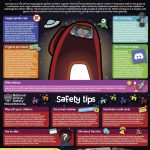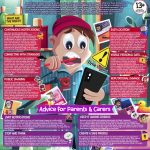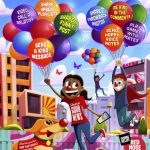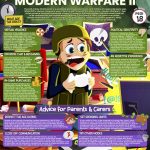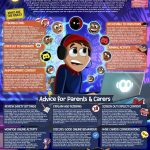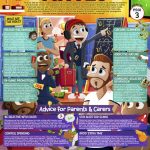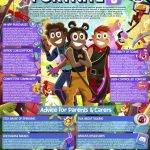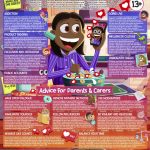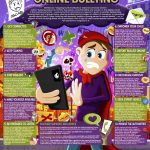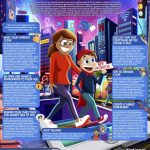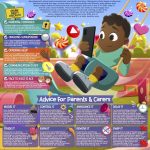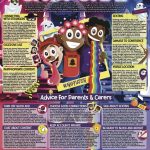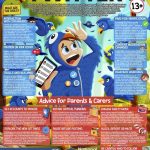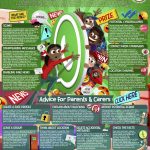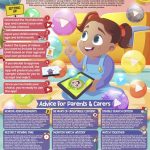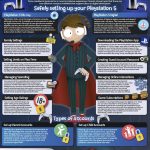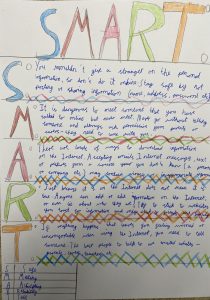
Our pupils are growing up in a world of ever-changing technology. While we feel that the use of technology is a largely positive aspect of modern life, we cannot ignore the risks that can be associated with its use.
As a SMART school, we aim to teach our children:
- about the impact of cyber-bullying and what to do if they have been affected;
- to be vigilant when communicating online recognising that people may not always be who they say they are and to be sensible about what they share;
- to tell an adult they trust if something is upsetting them;
- to question the reliability of information given through a web-based source;
- to search responsibly for information while using internet browsers.
What does S.M.A.R.T stand for?
- S – SAFE: Keep safe by being careful not to give out personal information to people you are chatting with online. This means your full name, email address, phone number, home address, your photos or school name.
- M – MEETING: Meeting someone you have only been in touch with online can be dangerous. How do you know that they are who they say they are? Only do so with your parents’ or guardians’ permission and even then only when they are with you so that they can keep you safe.
- A – ACCEPTING: Accepting emails, instant messages (like Whatsapp and iMessage), or opening files, pictures or texts from people you don’t know or trust can lead to problems – they may contain viruses that can make your computer sick or horrible messages that can be hurtful to you. If in doubt delete it and then find a grown up you trust and tell them.
- R – RELIABLE: Information you find on the internet may not be true, or someone online may be lying about who they are. If you don’t feel right about someone online always tell an adult.
- T – TELL: Tell your parents, guardian or trusted grown up if someone or something makes you feel uncomfortable or worried, or if someone you know is being bullied online. Remember if you are feeling bullied you have the power to switch that computer off and walk away! Don’t listen to nasty words from nasty people, believe in yourself and find the courage to tell someone who can help you.
We understand that much of our pupil’s use of the internet will occur at home, away from the school filters.
Below are a list of useful websites, advice and parent guides that you may find helpful when navigating the issue of online safety with your child.
Links:
Internet Matters https://www.internetmatters.org/schools-esafety/primary/
Safer Internet https://saferinternet.org.uk/


